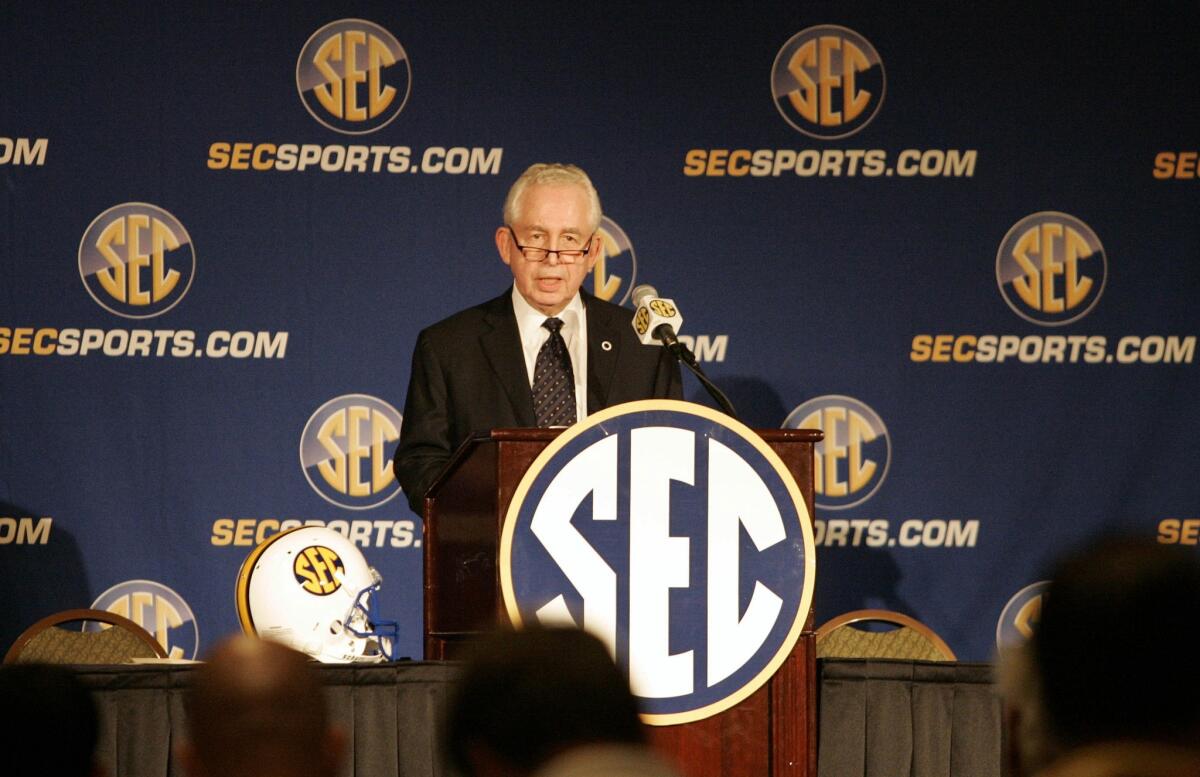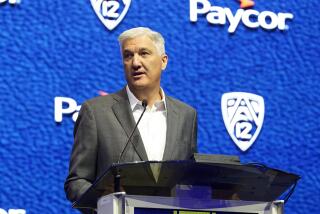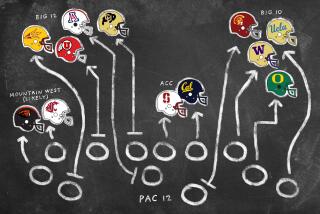SEC Commissioner Mike Slive set to retire in 2015

- Share via
Mike Slive became Southeastern Conference commissioner in 2002 promising to clean up the league’s renegade reputation.
He vowed to have all of its then-12 schools probation free within five years.
He eventually delivered on that goal and then cleaned up on everything else.
Slive, 74, announced Tuesday that he would retire in July 2015 after what can only be called a spectacular run as the chief executive of college football’s most powerful conference.
The SEC won 67 national championships under his command, including eight in the all-important sport of football.
The release announcing Slive’s departure stated that he was leaving in part to begin treatment for a recurrence of prostate cancer, which he successfully battled in the early 1990s.
“I have been blessed in more ways than I can count, and I will have as much passion for this job on my last day as I did on my first,” Slive said. “I consider my health situation a temporary detour in a remarkable road that has allowed me to meet amazing people, experience incredible events and celebrate historic victories. I will relish my final year in this position and look forward to being the biggest fan of the SEC for many years to come.”
Slive came to the SEC at a time when college football’s popularity started to soar. Conference commssioners essentially became czars after a 1980s Supreme Court ruling dissolved the NCAA’s monopoly on football broadcast rights.
Slive orchestrated gaudy revenue agreements and presided over the SEC’s rise to historic football dominance.
Slive and Big Ten Commissioner Jim Delany became, almost inarguably, college football’s two most powerful figures of the last decade.
Slive was an outsider, from Utica, N.Y., a Dartmouth grad no less. He was not steeped in the traditions of Southern football. He even worked for a time in the early 1980s as an executive in the Pac-10.
He called himself a “recovering lawyer” and came to the SEC after serving as commissioner of Conference USA.
Slive had the opposite personality of his SEC predecessor, Roy Kramer, a powerful, boisterous man with big ideas and opinions.
It was Kramer who conceived the idea for the Bowl Championship Series in 1998, but Slive who dominated it.
Slive was soft-spoken and avuncular, but he carried a big stick.
When Auburn finished undefeated in 2004 but did not make the BCS championship game because the Tigers finished third in the rankings behind USC and Oklahoma, Slive confided to a sportswriter, “That will never happen again.”
The SEC missed out on the BCS title game of 2005 but then won seven straight titles. Slive last summer compared the run to Joe DiMaggio’s 56-game hitting streak. In 2011, the SEC placed both Louisiana State and Alabama in the championship game in New Orleans.
His legacies will include expanding the league to 14 teams, the creation of the SEC Network and spearheading the drive for the new four-team playoff.
The SEC will conduct a national search for Slive’s successor. The league’s chief operating officer, Greg Sankey, is expected to be a leading candidate.
More to Read
Go beyond the scoreboard
Get the latest on L.A.'s teams in the daily Sports Report newsletter.
You may occasionally receive promotional content from the Los Angeles Times.











